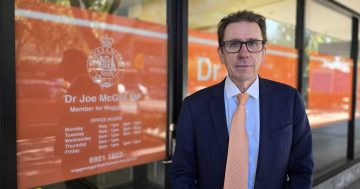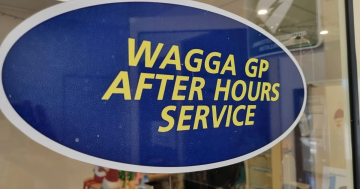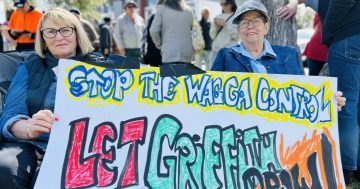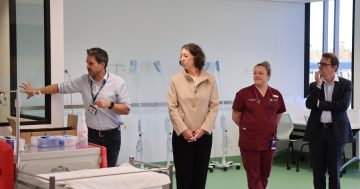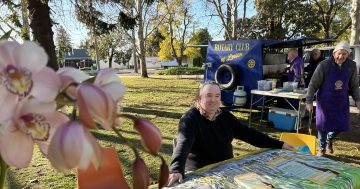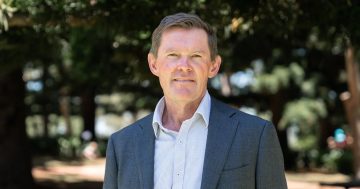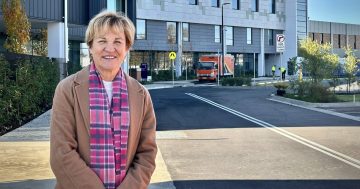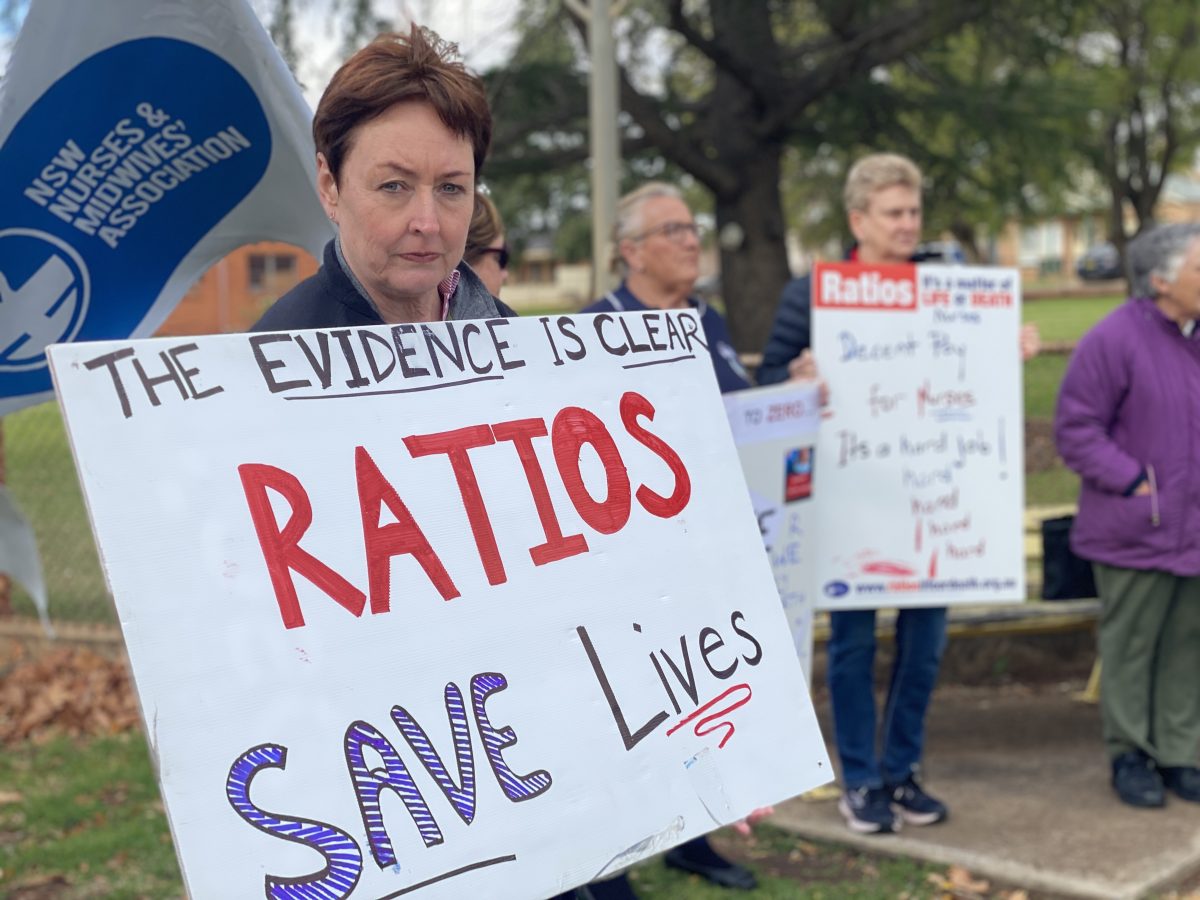
Nurses protest outside Leeton District Hospital in 2021. Photo: Supplied.
A hospital without a doctor might seem a contradiction in terms, but for years, Leeton District Hospital has not had a full-time resident doctor, relying instead on on-call and locum GPs to maintain continued access to doctors.
A spokesperson for Murrumbidgee Local Health District (MLHD) stressed that, despite a lack of permanent Leeton-based GPs, Leeton Hospital maintains a full-time roster of on-site hospital rural generalist doctors and the needs of patients in the community continue to be met.
Leeton Shire Council has indicated that recruiting doctors to relocate more permanently to the region is a deficiency that needs to be addressed in its strategic plan – a document called Liveable Leeton 2035 – which sets the direction, goals and aspirations for the community’s priorities for a future shire.
“Compared to many other rural communities we have a good number and selection of general practitioners (GPs) or GP registrars, dentists and allied health services,” the plan states.
“However, we can no longer rely on GPs servicing the Leeton Hospital Emergency Department.
“We are concerned that our access to a range of quality health services is declining.”
MLHD stressed that patients continued to receive access to full-time GP services and medical care at Leeton Hospital.
They acknowledged the challenges of regional recruitment but said that the Leeton Health Service maintained a full-time roster of visiting locum doctors and online after-hours care that ensured ongoing GP support for the community.
“In response to a reducing number of GP-Visting Medical Officers being available in Leeton, MLHD has previously made the decision to move to on-site hospital rural generalist doctors to provide care for emergency presentations, admitted patients and aged care residents,” they said.
“These doctors are contracted full-time to provide care in the hospital and are also on-call to provide after-hours care.”
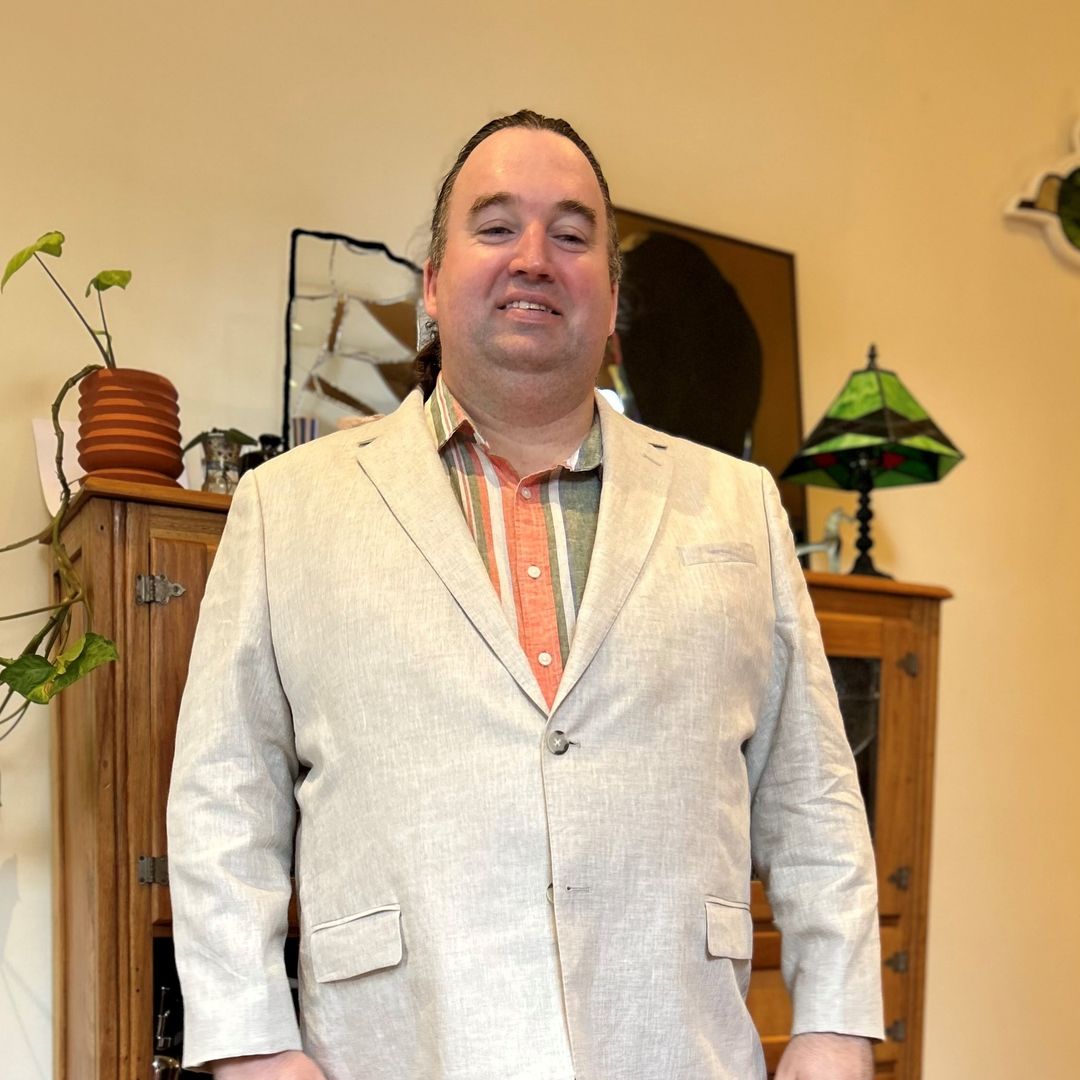
Nicholas was elected to Leeton Shire Council this year. Photo: Facebook.
Newly elected Leeton councillor Nicholas Wright, who has worked in health administration, offered his ideas to solve the recruitment challenges faced by smaller, more remote communities.
“If we are advertising for $200,000 less than they pay in the city, we’re never going to get a full-time doctor in our hospital,” he said.
“Murrumbidgee Local Health District has been advertising for years, but nobody takes the bait. Why would they? They can earn more somewhere else and live in a nice beachside suburb.
“There’s a reason why there’s one doctor per 300 people in Mosman and one per 2000 out here.”
Councillor Wright said he’d like to see NSW Health adopt the model the public education system used, where the more remote you went as a teacher, the more you earned.
“If we pay more, we will get the right person,” he said.
“We need to offer enough to get someone with consultant level competence, also willing to do day-to-day tasks and be a manager,” he said.
“We want people who are going to be here for several years and are going to commit to the community. You can’t just have a locum, or someone at the start of their career who is just going to work their way to a bigger hospital.”
A survey quoted in the strategic plan states that only 25 per cent of Leeton residents believe the town has access to a good range of health services.
“We are worried, for instance, about our inability to attract and keep sufficient medical staff to run an effective health service at the Leeton Hospital. Our birthing unit … is at risk of closure because we do not have enough doctors who are trained obstetricians and registered to deliver babies,” the plan states.
Liveable Leeton 2035 also looks at arts and culture, the economy, environment and other topics. Community members interested in participating in focus groups on Leeton’s strategic plan can fill out an Expressions of Interest (EOI) form by Sunday 27 October. Residents can also obtain a hard copy from the Leeton Shire Council offices at 23-25 Chelmsford Place or the Leeton Shire Library. Timing and attendance will be confirmed with participants over the coming weeks.







